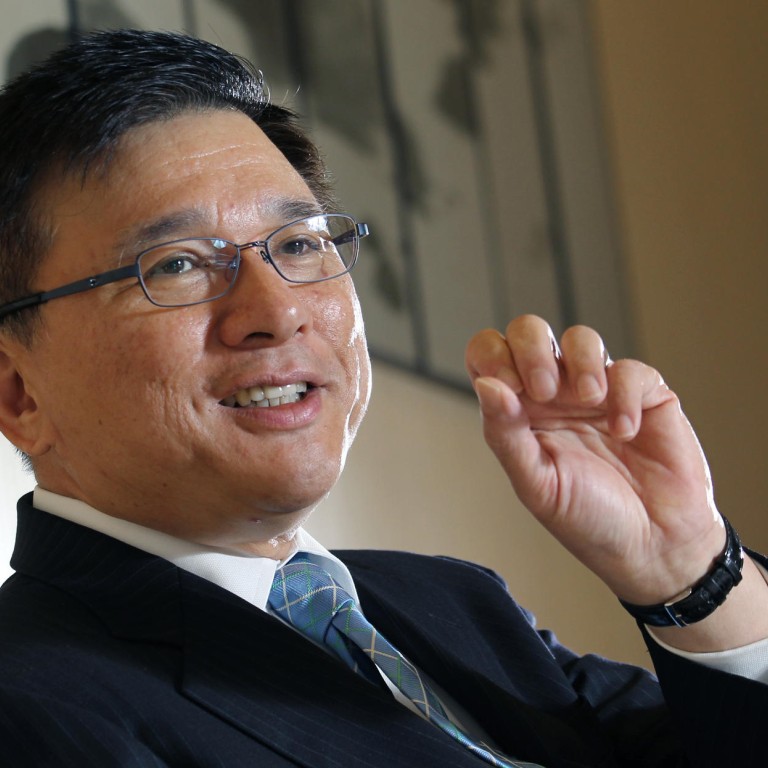
New | Yuan unlikely to fall further: says Hong Kong's financial services chief
HK financial services chief believes a substantial devaluation is not on the cards as it would push up import prices and lead to capital outflow
Beijing will not devalue the yuan much more as further cheapening of the currency may not help boost exports and might have adverse ramifications, said Hong Kong's financial services chief.
"The level of devaluation last week was small compared with other currencies such as the Korean won or the Malaysian ringgit, which have devalued by 10 to 20 per cent against the US dollar in recent months. I do not expect Beijing to devalue the yuan substantially in the near future as that may create more problems than help the mainland economy," Secretary for Financial Services and the Treasury Chan Ka-keung said on Thursday.
The People's Bank of China last Tuesday carried out a shock devaluation of the yuan and made its reference rate more market driven. As a result, the yuan lost about 3 per cent last week, its biggest weekly fall since 1994. Some analysts expect Beijing to bring the yuan down to about 6.80, from the 6.40 level at present, amounting to a 10 per cent devaluation that they say is necessary to make any meaningful difference to exports.
"I don't think Beijing plans to devalue the yuan too much to boost exports because there are other better alternatives to achieve that goal," Chan said.
"For some small economies, currency devaluation might be useful in boosting exports but such a strategy would not work for a big economy like China. Besides, a substantial devaluation of the yuan would push up import prices and may lead to capital outflow, which would do more harm than good."
Hence Chan believes Beijing would like to see a stable yuan. Following the surprise move last week, the People's Bank of China has increased the reference rate - the midprice for the yuan's exchange rate to the US dollar around which the currency can fall or rise 2 per cent - for five straight trading days.
A falling yuan has led many Hongkongers to change their yuan deposits to other currencies. There have also been fewer dim sum bond issues lately.
"These may be short-term phenomena only. I believe that when the yuan stabilises, depositors and investors will come back for yuan products. Hong Kong's status as a leading offshore yuan centre would not be affected by the devaluation."
Chan also said many foreign investors had told him that they were not overly worried about the stock market volatility on the mainland and Beijing's moves to rescue the market.
"Many foreign investors have taken a wait-and-see approach on the mainland stock market, which is why turnover has become thinner these days. They will come back when the uncertainties are over," he said.
"Many private equity funds have become more active recently as valuations have become more reasonable."
He said the Hong Kong government would deliver a report early next year on steps to encourage start-ups and how regulations would need to change to encourage companies to use new internet tools and social media for crowd-funding, internet lending and other related services.
"The government is very keen to promote start-ups and we will announce regulatory policy on these early next year," he said.

